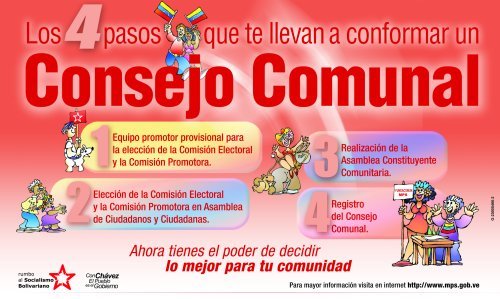Communal Councils are a mixed bag, says @brianpablo10


Get rich, quick, before the oil runs out

Get rich, quick, before the oil runs out
Reuters’ Brian Ellsworth has published a detailed look at communal councils – how mcuh money they get, and what they have done with it. Contrary to what you can imagine, the piece leaves a little bit for anyone.
Do you love the communal councils and believe they are the best thing since sliced bread? Here’s a money quote for you:
Before the Comptroller completed the investigation, Samán Mocho (a slum community council outside of Valencia) was approved for more funding. A government housing program gave the council another $465,000 in 2011 to build 30 homes, including one for (resident and ousted communal council board member Jesús) Díaz’s daughter. This time, Díaz says, the project was succesful. “It’s a demonstration that the people can build homes, it’s marvelous,” says Díaz.
Do you think the communal councils are simply a way of democratizing corruption, waste, and fraud? Here’s a money quote for you:
“Within a year (of receiving cash), auto mechanic Juan Freire was urging authorities to cut off (neighborhood communal council) El Chaparral and its sister community of Los Pinos, with a combined population of 250. The money wasn’t going to the needy, he said, and it wasn’t sowing growth. Instead, Freire alleges, leaders of the community council in this mountain suburb were using some of the cash for personal expenses and to build houses for family members. He and neighbors filed complaints with nearly a dozen state agencies seeking a halt to the transfers … Yet the money kept rolling in: In 2008, the council received close to $1 million, equal to about $40,000 per resident.”
Me? Count me in the second group … with a vengeance.
Who decides who gets what? Why does El Chaparral get $40,000 per resident while other communities get zilch?
Ellsworth says $7.9 billion have been distributed to communcal councils since 2006. That translates into roughly $1.1 billion per year. If you divide that among 15 million chavistas (the opposition gets nothing), you come to a figure of about $75 per person per year. That is peanuts – then again, it’s not like each chavista gets $75. The well connected ones in El Chaparral get thousands, others are left wanting.
If you want to distribute cash to poor people, then by all means distribute cash to poor people – equally, fairly, transparently. But a scheme like this leaves the good people of El Chaparral with forty grand in their pocket, and their less connected bethren over in, I dunno, San José de Táriba, with nothing. It’s the discretionary distribution of corruption, I don’t care how many low income houses you claim to build. And let’s not even get started with the “community centers” – is this really the best use of public money? How about creating roads? Drinking water systems? Things that, you know, will actually help people, industries, foster jobs, innovation?
The communal council exacerbates the failure of Venezuelans in understanding the idea of opportunity cost. Mr Díaz, from the first quote, was thrilled with the fact that 30 houses were built at a cost of $15,500 … but can that be right? Can you really build a house for $15 thousand? The real figure is probably higher. We will never know, and we will never be able to compare with the alternative uses for that money – who knows, who cares, as long as I get my house. It’s piñata economics on steroids.
Nicolás Maduro likes to say that the opposition will “do away with the communes” if they ever get to power. Oh man, if only that were the case! If only we had opposition politicians convinced that the communal council scheme is the devil incarnate.
So rest easy folks, sadly, your little Ponzi scheme is safe no matter who is in power. And do go read Brian’s piece.
Caracas Chronicles is 100% reader-supported.
We’ve been able to hang on for 22 years in one of the craziest media landscapes in the world. We’ve seen different media outlets in Venezuela (and abroad) closing shop, something we’re looking to avoid at all costs. Your collaboration goes a long way in helping us weather the storm.
Donate




